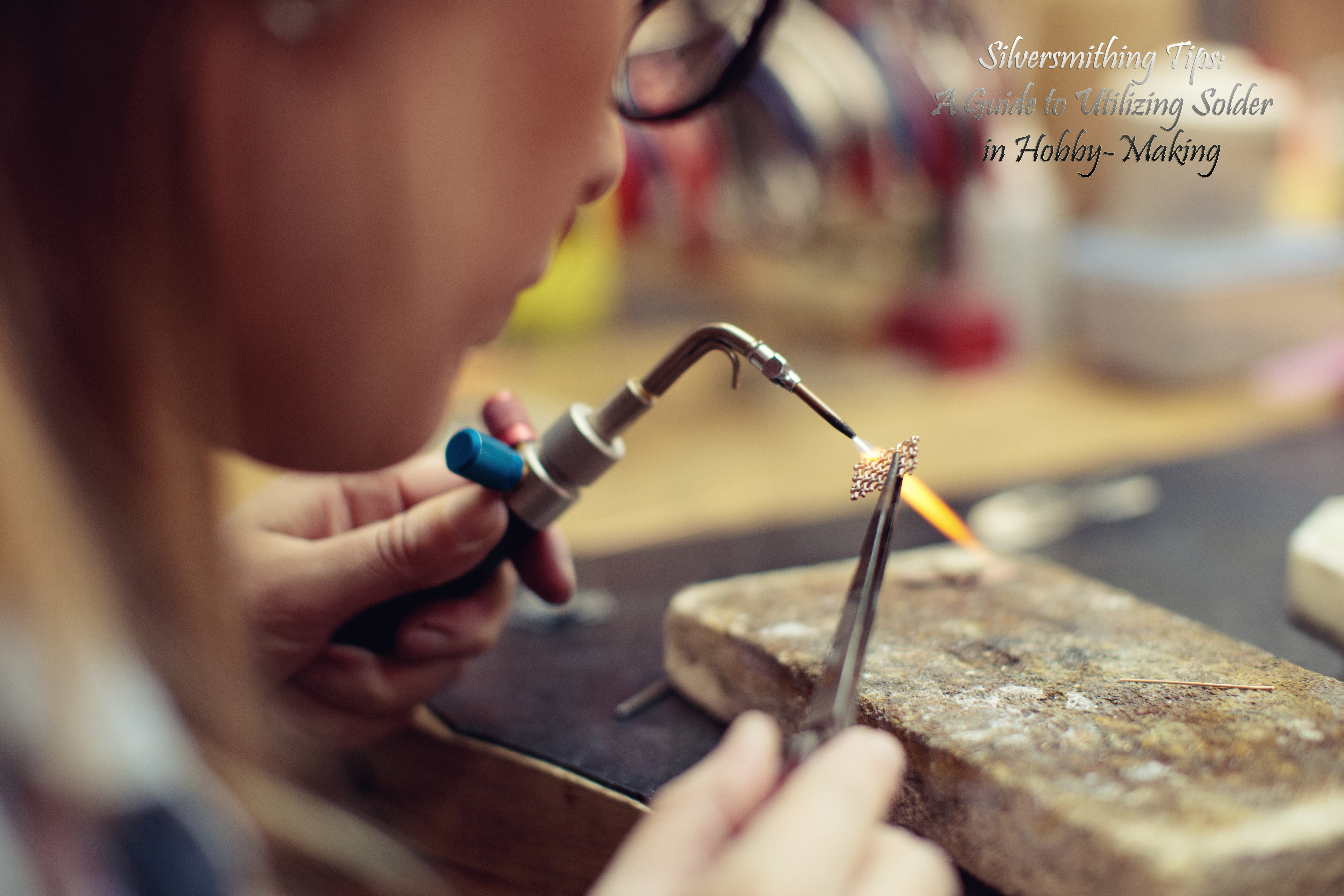
Silversmithing Tips: How to Utilize Solder in Hobby-Making
Silversmithing with solder is a common technique used in many home hobbies. Whether creating stained-glass, jewelry, ornamental art, or restoring a classic car, here are some silversmithing tips to help the home hobbyist create successful joints and metal bonds.
What is Solder?
Often used for home maintenance, solder isn’t just for repairs; these easy-to-melt alloys have a wide range of hobby-making applications, allowing the user to create a permanent bond between less fusible metals.
Soldering is similar to welding, but unlike welding, soldering does not actually melt the base metal. Both methods result in the creation of a joint, but soldering is often more suitable for smaller tasks, as well as being easier to master for budding hobbyists.
While solder is an umbrella term for any alloy used to fuse metals together, different types of solder contain different proportions of elements, which determines the solder’s melting temperature and applications.
Depending on the project that you wish to complete, you need to select the best kind of solder for your needs. We recommend SSF-6 Silver Solder.
Home Soldering Projects to Explore
Although the applications of solder in hobby-making are as endless as your imagination, here are a few ideas to get you started:
Jewelry Making
If you want to make high-quality jewelry at home, a little soldering know-how is essential. Platinum solder, gold solder, and silver solder are all suitable for this application, although silver solder is the most affordable and commonly used alloy for jewelry making.
If you want to create your own silver solder jewelry, be sure to read our guide to utilizing silver solder in jewelry-making applications for the best silversmithing tips for hobby-making.
Ornamental Art
Perfect for fans of arts and crafts, soldering can also be used to create ornaments such as Christmas tree decorations or even stained-glass windows. Projects such as this often work best with a general-purpose 60/40 solder, which is a favorite among hobbyists.
Classic Car Restoration
If crafting isn’t for you, soldering can be used in the restoration of classic cars. The type of solder you use largely depends on the area of the car that you are working on, but thankfully there are many forms of solder available to match any type of metal.
Many classic cars feature aluminum components, so having an aluminum alloy solder on hand is vital for those working on such vehicles.
Soldering and Silversmithing Tips
Soldering project kits are widely available, with many beginner kits being priced at around $50. As well as having the correct equipment to begin soldering, it is important to bear these tips in mind so that you can solder safely and effectively:
-
Although soldering does not melt the base metal, always ensure the metal is clean to achieve the best results.
-
Be careful not to move the joint while it is still cooling, as this can displace the metals.
-
Work in an area that is clean and free from anything flammable.
-
Always work in a well-ventilated room to avoid breathing in fumes, and wear proper protective gear for maximum safety.
-
Remember: soldering irons take a long time to cool off, so leave it in a safe place for a sufficient amount of time before packing up your equipment.
